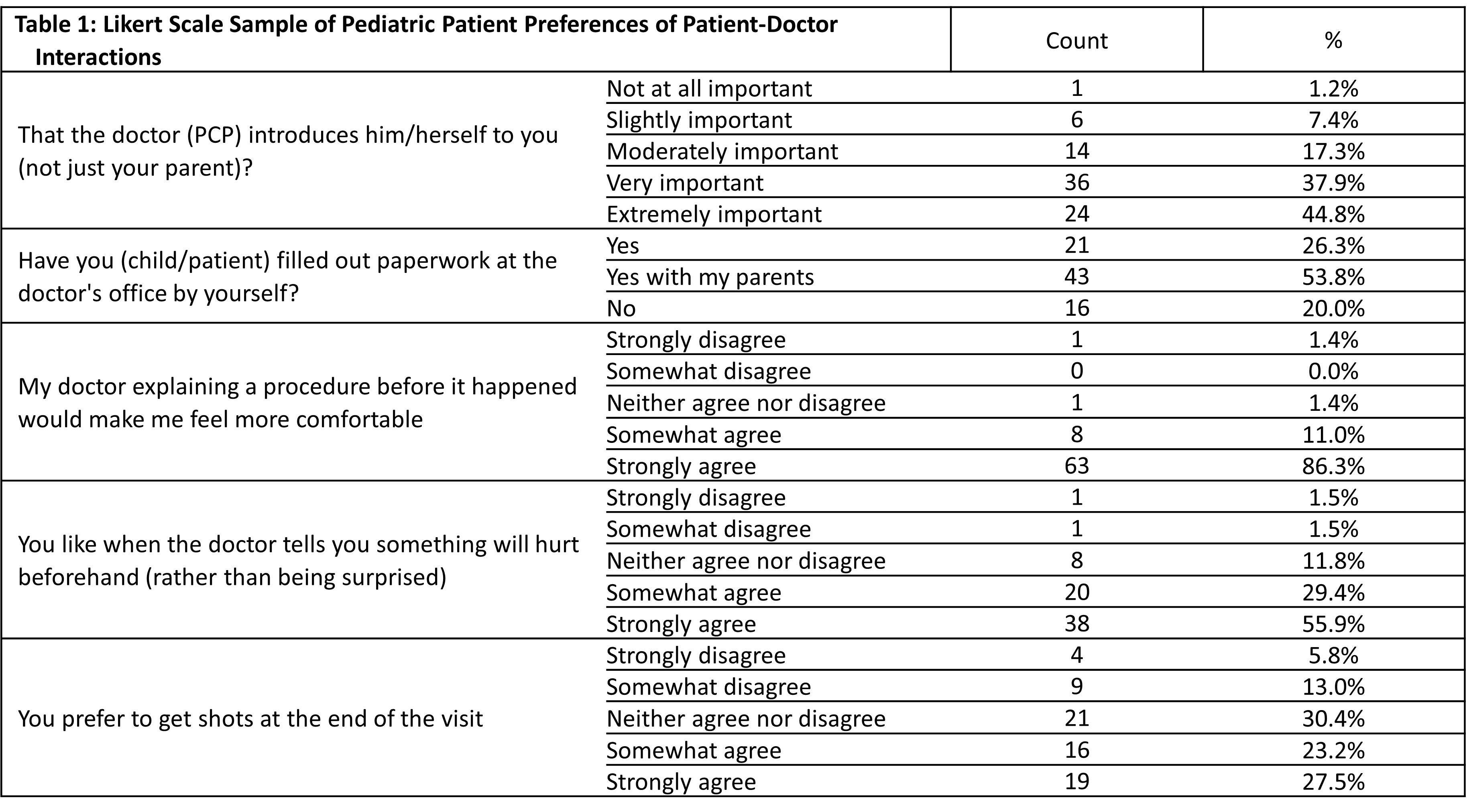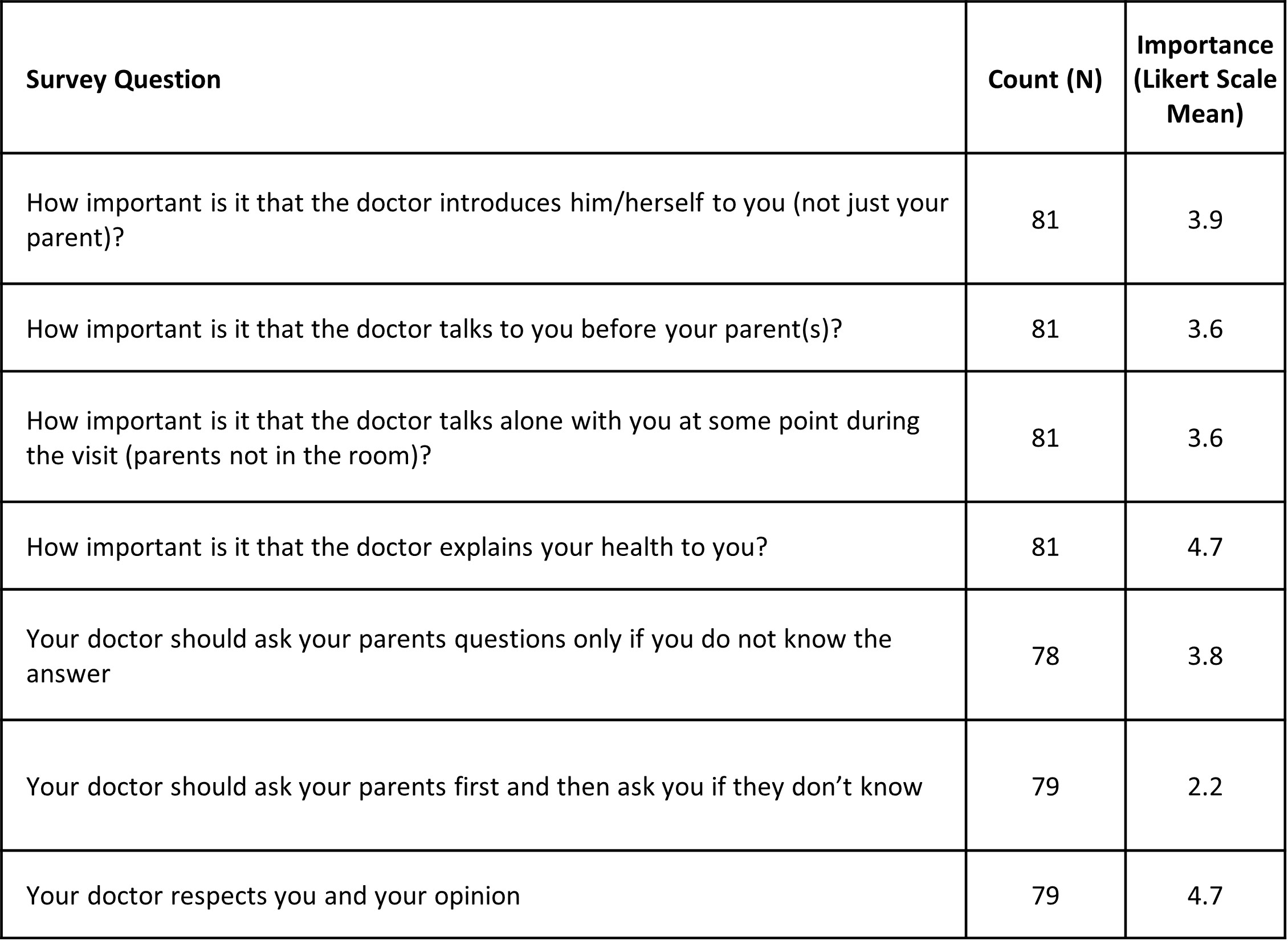Adolescent Medicine
Session: Adolescent Medicine 3
179 - What Kids Want Doctors to Know: A Prospective Quality Improvement Survey
Friday, May 3, 2024
5:15 PM - 7:15 PM ET
Poster Number: 179
Publication Number: 179.607
Publication Number: 179.607

Joseph Masison (he/him/his)
Medical Student
University of Connecticut School of Medicine
WEST HARTFORD, Connecticut, United States
Presenting Author(s)
Background: Actively involving patients in medical decision making is a critical part of patient centered care. Literature suggests that communication and including the child in decision-making improves the child’s perception of medical visits and may increase compliance with recommended care. However, there are few studies that evaluate how best to approach children in a medical setting from the children themselves.
Objective: To capture children’s preferences on physician behavior and related interactions during medical visits.
Design/Methods: A prospective survey was administered to children ages 8 to 21 years old with and without chronic health conditions at the 2022 International Children’s Advisory Network (iCAN) International Summit in July 2022. Survey questions queried demographic characteristics, chronic condition status, and assessed the preferences and impact of primary care interactions, health knowledge, fears, environment, and COVID related factors. Descriptive statistics and univariate analysis performed.
Results: 81 children consented to participate, of which 70.5% were from the United States, 17.9% Europe, 1.1% Asia 1.1% and 10.5% Other. Most were between the ages of 13-18 years old (71.6%) versus 19+ years (21.1%) or 8-12 years (7.4%) and 35.8% identified as having a chronic health problem. The majority of children identified being addressed directly and being the primary participant in their care as important or very important (Table 1) with no significant difference by age group (p > 0.05). There was a significant difference in preference between age groups regarding paperwork, with younger children preferring more assistance filled out forms than older children (83.3% 8-12 years versus 33.3% 13-18 years and 26.7% 19+ years; p = 0.039). In terms of health knowledge, almost all children were interested in the details of their health (97.2%), felt going to the doctor was important (91.7%), and wanted to have procedures and diagnoses explained to them in detail (98.6%). Most (58.7%) felt that going to the doctor is moderately different now than before COVID, but over half (61%) now have a greater appreciation for providers.
Conclusion(s): Younger children may need more assistance with administrative tasks related to medical care, but all children, regardless of age, wish to be active participants in their health care. Although COVID impacted the children’s perception of doctors, they are more appreciative and should be fully informed with details about their health to maximize their involvement in their care.


